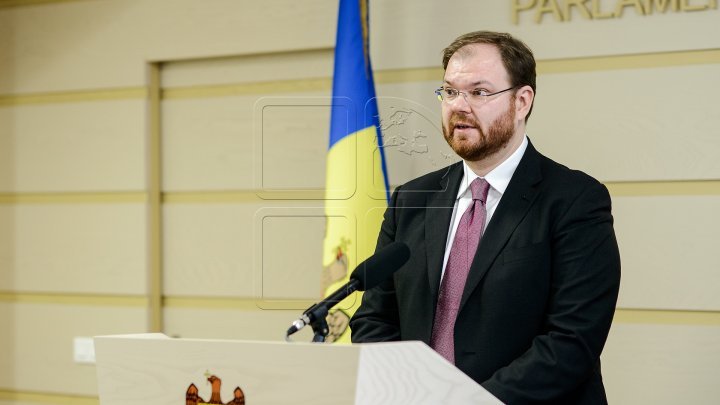Moldova banks overhaul after money laundering scandals and are complying with reforms requested by EU
 foto: publika.md
foto: publika.md
The head of Moldova’s central bank said major foreign banks were increasingly wary of working in the ex-Soviet nation after a spate of money-laundering scandals in recent years, despite progress overhauling the country’s banking system.
The country was nearly bankrupted in 2015 after $1 billion was stolen from three of its largest banks. From 2011 to 2014, some $22.3 billion of Russian money was allegedly laundered through the Moldovan financial system.
Serdgiu Cioclea, who was appointed to run the central bank after the fraud scandal and to oversee reform of the country’s banks, said Moldova needed to make mending its reputation abroad a priority.
“Moldova has not yet turned the page in connection with the laundering of dirty money in the recent past,” Cioclea told Reuters in an interview. “Large international banks are closing correspondent accounts (in Moldova) one after another.”
“We have to understand that for foreign banks, the possible risks linked to sanctions due to engagement with money-laundering channels are becoming too big compared with the teensy profits they can get from countries like Moldova.”
Cioclea said local banks had willingly complied with reforms and regulations in line with the IMF agreement and the conditions of a separate funding deal with the European Union worth 100 million euros ($118 million).
“The banks correctly perceived the spirit of the times and are introducing changes to internal procedures,” he said.
These have included strengthening corporate governance, adhering to minimum capital requirements, and adopting new financial reporting rules.
In 2015, the shock to the banking system caused the economy to shrink 0.5 percent. It has since returned to growth, expanding 4.1 percent in 2016 and 4.5 percent in 2017. ($1 = 0.8485 euros)